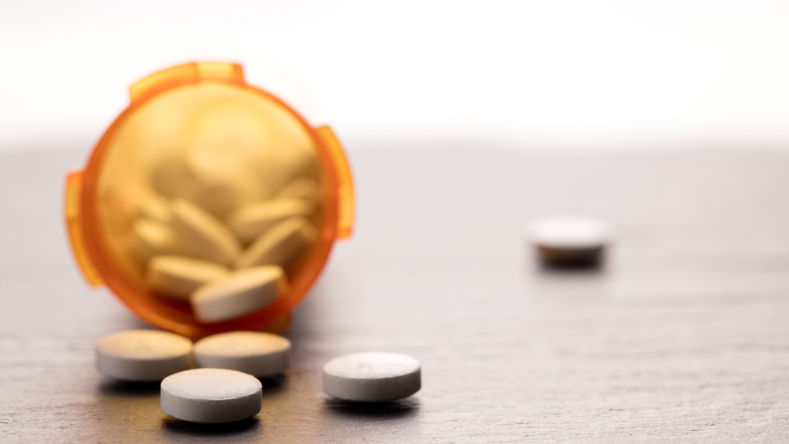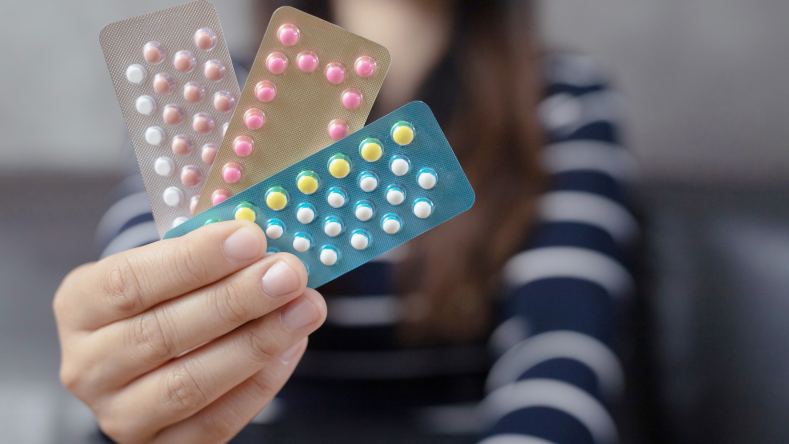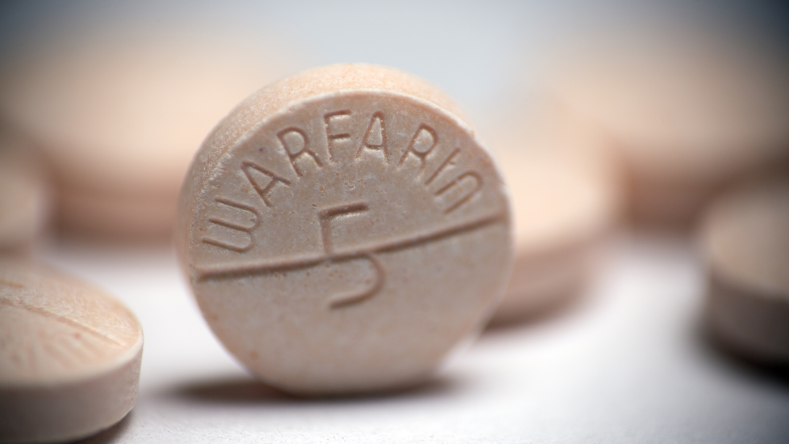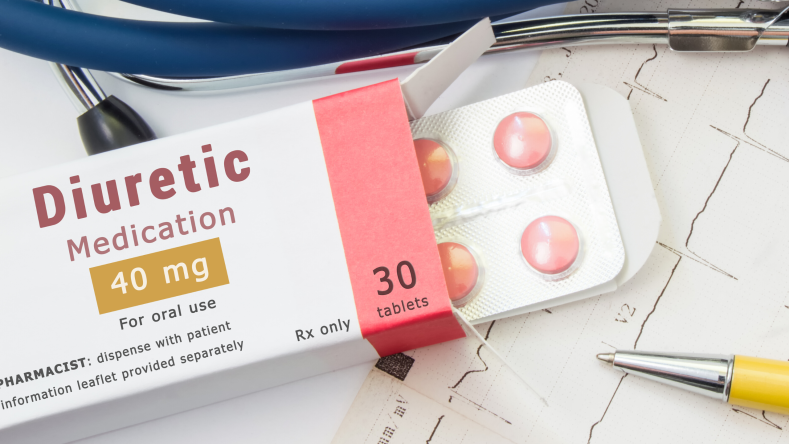10 surprising drug-nutrient interactions for common medications
Interactions between medications and nutrients can produce dangerous side effects or cause detrimental nutrient deficiencies. Here are 10 surprising drug-nutrient interactions for common medications you should know about before popping that next pill.

Contents
Aspirin & vitamin C Birth control pills & nutrient depletion Antacids, iron, & vitamin B12 Blood thinners & vitamin K Statins & grapefruit Blood pressure meds & grapefruit Thyroid hormone, calcium & iron Metformin & vitamin B12 Diuretics, calcium, magnesium, potassium, & zinc Antibiotics, calcium, magnesium, iron, & zinc Summary Key points:According to two recent surveys, nearly 1 out of 2 adults in the U.S. reported taking at least one prescription drug in the last 30 days, and 8 in 10 regularly use over-the-counter medicines to relieve symptoms and spare themselves a trip to the doctor [ 1 2
Interactions between medications and nutrients, both from food and supplements, can alter both how a medication works and how a nutrient is used in the body. Medications may change the way a particular nutrient is absorbed, utilized, and eliminated, and similarly, nutrients can alter how the body absorbs and processes different medications. In some cases, these interactions can produce dangerous side effects or set you up for certain nutrient deficiencies.
Today we’re shedding light on 10 surprising nutrient interactions for some of the most commonly used medications. From aspirin to contraceptives and statins, here’s what you need to know about how these drugs interact with certain nutrients and how you can maximize their effectiveness.

Aspirin & vitamin C
Aspirin is commonly taken to reduce fever, pain, and inflammation; however, taking high doses of aspirin (about 900 mg) may increase the loss of vitamin C in the urine and reduce its absorption [3 4 collagen
When taking higher doses of aspirin, be sure to eat plenty of vitamin C-rich foods (like citrus fruit, bell peppers, strawberries, and tomatoes) and cruciferous veggies like broccoli, cauliflower, and Brussels sprouts. You may also want to consider taking a vitamin C supplement along with it, which evidence suggests may protect the stomach lining from the damaging effects of aspirin [ 4 4

Birth control pills & nutrient depletion
Birth control pills (otherwise known as oral contraceptives), are used by roughly 6 million women in the U.S. [ 5 16]
Over the years, researchers have investigated the physiological changes in women taking the pill, and have found that those who take oral contraceptives are at a greater risk of key nutrient depletions, including folic acid, B2, B6, B12, vitamin C and E, magnesium, selenium, and zinc [ 6
If you’re taking oral contraceptives, a balanced, nutrient-rich diet that includes a variety of whole foods, fortified grains and cereals, healthy fats, and fruits and vegetables can likely make up for these effects; however a quality multi-vitamin would likely be adequate to fill nutritional gaps.
Antacids, iron, & vitamin B12
Proton-pump inhibitors–a type of prescription antacid also known as omeprazole–reduce stomach acid production and are used to treat acid reflux (like gastroesophageal reflux disease or GERD), peptic ulcers, and H. pylori infection. This bacterial infection can damage the lining of the stomach and upper part of the small intestine.
Both over-the-counter and prescription antacids reduce the acidity of the stomach which can decrease absorption the solubility and absorption of iron both from foods and supplements. Regular, long-term use of these medications may lead to iron depletion and potentially cause iron deficiency [ 4
Proton-pump inhibitors may also decrease the absorption of vitamin B12 from foods, a nutrient that plays an essential role in maintaining a healthy central nervous system, red blood cell formation, and DNA synthesis [ 4 7
If you’re taking proton-pump inhibitors long-term, you may want to check your B12, calcium, and iron levels periodically and supplement these nutrients if needed. The ranges may vary between labs, but normal levels are considered to be:
Vitamin B12: between 200-600 pg/mL
Total blood calcium: between 8.5-10.5 mg/dL
Serum iron: 60-170 mcg/dL
Levels below this may indicate a nutrient insufficiency or deficiency.
While the absorption of supplemental B12 does not appear to be impacted when taken with a proton-pump inhibitor, you should take calcium and iron supplements at least two hours before or after these types of antacids [ 4

Blood thinners & vitamin K
Warfarin (such as Coumadin® or Jantoven®) and low-dose aspirin are common blood thinners prescribed to help prevent blood clots and protect against heart attack and stroke.
Green, leafy vegetables high in vitamin K — including kale, collard greens, turnip greens, and spinach— and vitamin K supplements can decrease how well warfarin and aspirin thin the blood.
Since your blood thinner dosage is partly based on your usual dietary intake of vitamin K, you should avoid vitamin K supplements and consume significantly more vitamin K from foods than usual while taking a blood thinner. However, the adequate intake of vitamin K (about 90 µg/day for women and 120 µg/day for men) appears safe for those on blood thinners [ 8
If you love your leafy greens, talk with your healthcare provider about how your consumption may affect your blood thinner dosage. It’s also important that your daily intake of vitamin K remains consistent with minimizing the risk of complications, including severe bleeding or blood clots [ 9
Statins & grapefruit
Statins (including atorvastatin, lovastatin, and simvastatin) are commonly prescribed to treat high cholesterol, as they lower "bad" LDL cholesterol and triglycerides, and raise "good" HDL cholesterol.
Consuming grapefruit, especially grapefruit juice, increases how much of this medication your body absorbs, which results in much higher amounts in the blood and a greater risk of side effects and toxicity [ 4 4
If you’re unsure what type of cholesterol-lowering medication you take, it’s best to hold off on the grapefruit juice and palomas until you can ask your doctor.
Blood pressure meds & grapefruit
Not to get down on grapefruit, but this citrus fruit also doesn’t play well with calcium channel blockers, a medication prescribed to treat high blood pressure and coronary heart disease, as it helps relax the muscles that make up the walls of your arteries.
Consuming grapefruit while taking this type of medication (including amlodipine, felodipine, lacidipine, verapamil, and more) can also increase the level of the medicine in your blood and put you at greater risk for side effects and toxicity [ 10 4
Thyroid hormone, calcium & iron
Levothyroxine (a synthetic thyroid hormone) is a medicine commonly used to treat an underactive thyroid gland, a condition known as hypothyroidism. Levothyroxine is taken to replace thyroxine which an underactive thyroid does not make enough of.
Taking calcium or ferrous sulfate (a common form of supplemental iron) may decrease the absorption of levothyroxine and therefore reduce its effectiveness [ 4 4
Metformin & vitamin B12
Metformin is a medicine prescribed to lower high blood sugar levels in those with type 2 diabetes. It works by helping improve the body’s response to insulin, the hormone responsible for allowing sugar to enter cells to be used for energy. Metformin also decreases the amount of sugar your liver makes and absorbs from food.
Taking metformin can reduce your absorption of vitamin B12, a vitamin that plays an essential role in the production of red blood cells, cell metabolism, nerve function, and DNA synthesis. Vitamin B12 deficiency can lead to anemia, which can cause weakness, lightheadedness, shortness of breath, heart palpitations, pale skin, a smooth tongue, vision and memory problems, and more [ 11
Interestingly, some evidence suggests taking 1,200 mg of supplemental calcium carbonate along with metformin can potentially negate this interaction [ 12
If you take metformin and do not consume calcium-rich foods like milk, yogurt, cheese, you may want to consider a calcium supplement as it may help prevent a metformin-related B12 deficiency [ 12

Diuretics, calcium, magnesium, potassium, & zinc
Thiazide diuretics (also known as hydrochlorothiazide) are commonly prescribed to treat high blood pressure and edema (the retention of excess fluid in the tissues). These types of diuretics work by blocking the reabsorption of sodium and water by the kidneys, thus increasing urine production and sodium excretion [ 13
Prolonged use of thiazide diuretics may increase the body’s retention of calcium (hypercalcemia) while increasing the excretion of magnesium, potassium, and zinc [ 4
Hypercalcemia can weaken bones, cause kidney stones, and interfere with heart and brain function [ 14
If you take a thiazide diuretic regularly, it’s a good idea to talk to your doctor or dietitian about these nutrient concerns and subsequent supplementation.
Antibiotics, calcium, magnesium, iron, & zinc
Calcium, magnesium, iron, and zinc from food or supplements can decrease the absorption of some antibiotics. Two groups of these include Quinolone-class antibiotics (such as ciprofloxacin, gemifloxacin, levofloxacin, lomefloxacin, moxifloxacin, and ofloxacin) and Tetracycline-class antibiotics (chlortetracycline, demeclocycline, doxycycline, eravacycline, lymecycline, omadacycline, oxytetracycline, sarecycline, and tetracycline). Consuming antibiotics with these minerals may also reduce the absorption of these nutrients [ 4
Specific recommendations will vary between antibiotics, but to minimize the potential for an interaction, it’s best to take your antibiotic at least two hours before or several hours after consuming these minerals from food or supplements [ 4
Summary
Interactions between medications and nutrients, both from food and supplements, can alter both how a medication works and how a nutrient is used in the body. In some cases, these interactions can produce dangerous side effects or set you up for nutritional deficiencies.
Some of the most common medications have noteworthy nutrient interactions, including aspirin, oral contraceptives, antacids, blood thinners, blood pressure and cholesterol reducers, synthetic thyroid hormone, diabetes meds, diuretics, and antibiotics.
Even if you take only one medication, whether it be prescription or over-the-counter, you should talk with your doctor or pharmacist about what you’re using to identify possible interactions.
Disclaimer: The text, images, videos, and other media on this page are provided for informational purposes only and are not intended to treat, diagnose, or replace personalized medical care.
Key points:
Long-term aspirin use may affect your body’s ability to maintain adequate vitamin C levels.
Women who take the birth control pill are at greater risk for pill are at greater risk for depletion of folic acid, B2, B6, B12, vitamin C and E, magnesium, selenium, and zinc
Antacids can reduce your absorption of iron. Proton-pump inhibitors can also inhibit absorption of vitamin B12.
Consuming grapefruit along with statins (to reduce cholesterol) and calcium-channel blockers (to reduce blood pressure) can lead to dangerously high levels of these medications in the blood and put you at greater risk for side effects and toxicity.
Calcium, magnesium, iron, and zinc from food or supplements can decrease the absorption of some antibiotics.
References:
National Center for Health Statistics: Therapeutic Drug Use. (2021, October 20). Center for Disease Control and Prevention (CDC). Retrieved June 28, 2022, from
https://www.cdc.gov/nchs/fastats/drug-use-therapeutic.htm
OTC Sales Statistics | Consumer Healthcare Products Association. (n.d.). Consumer Healthcare Products Association. Retrieved June 28, 2022, from
https://www.chpa.org/about-consumer-healthcare/research-data/otc-sales-statistics
Basu T. K. (1982). Vitamin C-aspirin interactions. International journal for vitamin and nutrition research. Supplement = Internationale Zeitschrift fur Vitamin- und Ernahrungsforschung. Supplement, 23, 83–90.
https://pubmed.ncbi.nlm.nih.gov/6811490/
Drug-Nutrient Interactions. (2020). Linus Pauling Institute. Retrieved June 27, 2022, from
https://lpi.oregonstate.edu/mic/drug-nutrient-interactions
Daniels, K., & Amba, J. C. (2018, December). Current Contraceptive Status Among Women Aged 15–49: United States, 2015–2017 (No. 327). Center for Disease Control and Prevention (CDC).
https://www.cdc.gov/nchs/products/databriefs/db327.htm#
Palmery, M., Saraceno, A., Vaiarelli, A., & Carlomagno, G. (2013). Oral contraceptives and changes in nutritional requirements. European review for medical and pharmacological sciences, 17(13), 1804–1813.
https://pubmed.ncbi.nlm.nih.gov/23852908/
Office of Dietary Supplements - Vitamin B12. (2022, March 9). National Institutes of Health (NIH). Retrieved June 28, 2022, from
https://ods.od.nih.gov/factsheets/VitaminB12-HealthProfessional/
Institute of Medicine (US) Panel on Micronutrients. Dietary Reference Intakes for Vitamin A, Vitamin K, Arsenic, Boron, Chromium, Copper, Iodine, Iron, Manganese, Molybdenum, Nickel, Silicon, Vanadium, and Zinc. Washington (DC): National Academies Press (US); 2001. 5, Vitamin K. Available from:
https://www.ncbi.nlm.nih.gov/books/NBK222299/
Coumadin Oral: Uses, Side Effects, Interactions, Pictures, Warnings & Dosing - WebMD. (n.d.). WebMD. Retrieved June 27, 2022, from
https://www.webmd.com/drugs/2/drug-4069/coumadin-oral/details
NHS website. (2021, November 18). Does grapefruit affect my medicine? NHS.Uk. Retrieved June 27, 2022, from
https://www.nhs.uk/common-health-questions/medicines/does-grapefruit-affect-my-medicine/#
.Vitamin B12 Deficiency: Causes, Symptoms, and Treatment. (n.d.). WebMD. Retrieved June 27, 2022, from
https://www.webmd.com/diet/vitamin-b12-deficiency-symptoms-causes
Bauman, W. A., Shaw, S., Jayatilleke, E., Spungen, A. M., & Herbert, V. (2000). Increased intake of calcium reverses vitamin B12 malabsorption induced by metformin. Diabetes care, 23(9), 1227–1231.
https://doi.org/10.2337/diacare.23.9.1227
Hydrochlorothiazide: MedlinePlus Drug Information. (n.d.). WebMD. Retrieved June 27, 2022, from
https://medlineplus.gov/druginfo/meds/a682571.html
Hypercalcemia - Symptoms and causes. (2022, March 23). Mayo Clinic. Retrieved June 27, 2022, from
https://www.mayoclinic.org/diseases-conditions/hypercalcemia/symptoms-causes/syc-20355523#
Alcohol Interactions With Medications: Effects and Guidelines. (2011, February 21). WebMD. Retrieved June 27, 2022, from
https://www.webmd.com/mental-health/addiction/alcohol-interactions-with-medications
Other Benefits of Birth Control. (2018, December 3). WebMD. Retrieved July 4, 2022, from
https://www.webmd.com/sex/birth-control/other-benefits-birth-control







